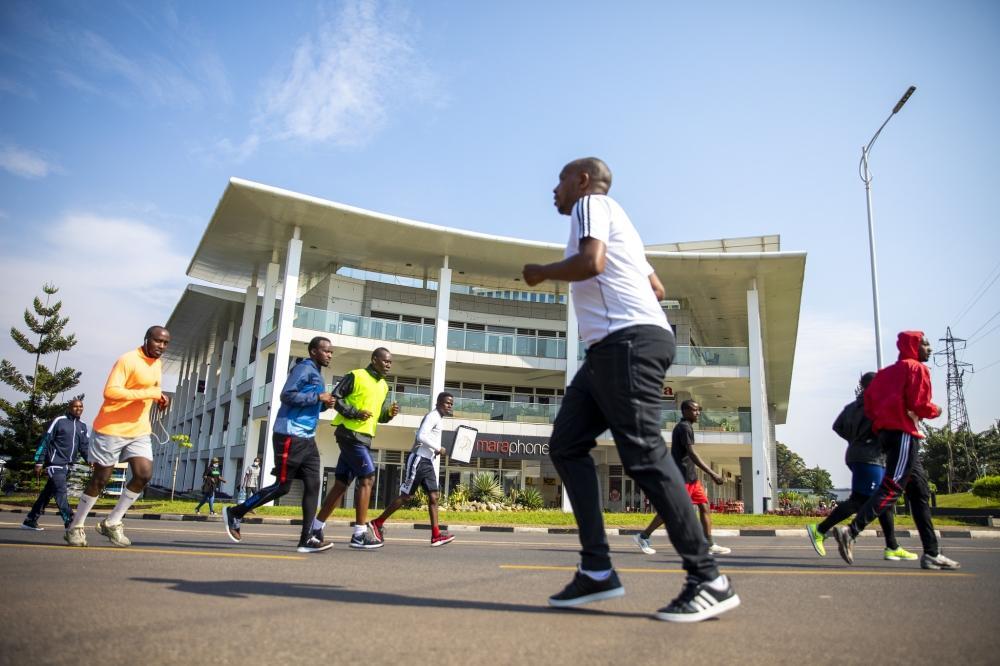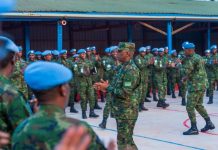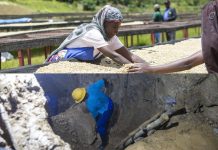Lynnette Khalfani-Cox
Africa-Press – Rwanda. When my husband Earl and I first visited Rwanda in February, we were struck by the country’s breathtaking beauty, peacefulness, and deep sense of national purpose. On our second trip in April, we saw even more clearly what makes Rwanda such an extraordinary place: not just its clean streets, lush hillsides, or innovative public policies, but its people — resilient, resourceful, and quietly building something remarkable.
As an African-American financial educator who’s taught personal finance for over 20 years, I view Rwanda through both a visitor’s eyes and a wealth-building lens. And I believe one of the most powerful, yet underappreciated, tools Rwanda has for reaching its ambitious Vision 2050 goals is this: a nationwide culture of financial wellness.
We often think of financial wellness as the result of an individual pursuit: things like budgeting better, saving consistently, or avoiding excessive debt.
But in Rwanda, I saw something more holistic — a shared responsibility model that ties money to community, discipline to dignity, and savings to social cohesion.
Empowering people, strengthening systems
In the “Land of a Thousand Hills,” financial wellness is about empowering people and strengthening systems.
Consider Umuganda, Rwanda’s monthly day of national service. At first glance, it’s a civic clean-up program. But it’s also a deeply embedded financial wellness tool. After the cleaning is done, many neighborhoods gather to solve problems collectively: resolving disputes, coordinating savings groups, and making decisions that impact their local economy. This is community-based planning and governance in action.
Or take car-free days, which encourage physical activity and community health. They may seem like public health initiatives, but they also represent long-term financial savings: reduced healthcare costs, better mental health, and more productive citizens.
Even the act of basket weaving or cooking at community centers like the Nyamirambo Women’s Center isn’t just about preserving cultural heritage. It’s economic empowerment in real time. I had the privilege of learning from a skilled artisan named Claudine, who showed me the care, precision, and pride embedded in the painstaking work of weaving.
Watching Claudine deftly make earrings from plant fibers, I realized that this was financial wellness in action – not just an individual activity, but a community endeavor literally woven into Rwanda’s national fabric. Others at the NWC were equally industrious, doing everything from hairdressing and tour guiding to embroidery and seamstress work.
Mary Nyangoma, one of the 18 founders of the Nyamirambo Women’s Center, told me: “We are always thinking of new ways to develop income streams.” The activities that the women engage in earn them a fair wage and support the center’s broader gender equality efforts: fostering entrepreneurship, developing job skills, and strengthening microenterprises for women.
From savings to sustainable tourism
And then there’s Rwanda’s remarkable savings groups. One young woman, Shadia, told me how her mother encouraged her to join a savings cooperative. Shadia now saves regularly for her future wedding. That’s financial planning, accountability, and long-term thinking all rolled into one simple practice — and it’s happening at scale.
In many African nations (and throughout the Caribbean as well), these rotating savings and lending groups are known by many names: “susus,” “esusu,” “tontines.” What they have in common is trust. In a world where access to formal credit may be limited, these systems provide structure, reliability, and real financial outcomes.
Tourism, too, contributes powerfully to the nation’s social and financial ecosystems.
In 2024 alone, Rwanda earned $647 million in tourism revenue, with more than $200 million from gorilla-related activities, per the Rwanda Development Board’s 2024 Annual Report.
My own visits to the Dian Fossey Gorilla Fund and the Gorilla Guardians Village helped me understand why conservation is tied so closely to financial wellness. There, reformed poachers now serve as educators and stewards of the land, helping preserve biodiversity and create sustainable livelihoods.
I also visited Akagera National Park, where I was guided by Amour — another reformed poacher turned conservationist. As we explored Rwanda’s only savanna park in an open 4×4, Amour shared not only his deep wildlife knowledge but also a powerful story of personal transformation.
“We killed more than half of the animal population in this park,” he admitted. “Now my life is really connected with this national park, these animals and nature.”
Amour explained that his journey began when he was just 15 years old. “In my village, nearly everyone was hunting illegally,” he said. After the 1994 genocide, economic necessity drove many to poaching.
“We were a poor family,” he told me, noting that bush meat became a significant market with exports even reaching neighboring DRC and Burundi. Fortunately, what started as survival has now transformed into stewardship, with Amour beginning official work at Akagera in 2014.
So, what does this have to do with Vision 2050?
Everything.
If Rwanda wants to become a high-income country, as its national plan envisions, financial wellness planning must be treated as core infrastructure. Just like roads, power grids, tourism, and internet connectivity, financial capability and economic participation must be built, maintained, and expanded.
But here’s the opportunity: Rwanda already has the cultural foundations in place. From community savings cooperatives to grassroots entrepreneurship, Rwanda’s people are already practicing financial wellness in their everyday lives.
Challenges that remain
Despite Rwanda’s remarkable progress, several challenges to nationwide financial wellness persist:
Urban-rural divide: While Kigali has seen rapid development in financial services, many rural communities still lack adequate access to banking, insurance, and investment opportunities.
Gender gaps in financial inclusion: Women, especially in agriculture and informal sectors, often face higher barriers to accessing credit, financial training, and business development resources.
Limited digital infrastructure: In some regions, inconsistent internet connectivity and electricity pose obstacles to digital financial services adoption, creating a financial inclusion gap that requires investment.
Informal economy dominance: With a significant portion of economic activity happening in the informal sector, many Rwandans operate outside formal financial systems, limiting their ability to build credit histories and access broader financial products.
Case in point: with more than 65% of the population actively using mobile money services, Rwanda’s digital financial ecosystem is already vibrant. Yet meaningful wealth-building still depends on ensuring true financial wellness, not just access.
What’s needed now is strategic amplification:
Integrate financial education into school curriculums, beginning in primary grades
Encourage banks and lenders to recognize savings groups as credible indicators of financial discipline and creditworthiness
Promote employer-based financial wellness programs to reduce stress, boost productivity, and foster workplace loyalty
Continue designing inclusive policies that reflect Rwanda’s strengths: shared responsibility, social trust, and community-led innovation
Expand digital financial literacy programs that help citizens safely navigate mobile banking, digital payments, and emerging fintech solutions while protecting them from scams and fraud
Create mentorship networks connecting established entrepreneurs with young Rwandans to share practical financial knowledge, business skills, and market insights that build intergenerational wealth
During our visits with the Rwanda Development Board, the Kigali International Financial Centre(KIFC), and the Association of Microfinance Institutions in Rwanda, we heard how institutions are already thinking bigger. There is growing recognition that advancing financial literacy and building investor trust are central to Rwanda’s future as a pan-African financial hub and, ultimately, as a global finance destination.
Organisations like AMIR, which boasts more than 450 microfinance institutions across the country, are eager to deepen financial participation at all levels of society. While Rwanda has achieved a remarkable 96% financial inclusion rate – up from 21% of the adult population in 2001 – AMIR Executive Director Jackson Kriwikiza isn’t resting on his laurels.
He’s striving for more, to help more Rwandans financially.
“Having an account is different from using an account,” Kriwikiza notes. “You can have a bank account, but it can be dormant,” he added, explaining that one of AMIR’s priorities is to address gaps in financial literacy and financial education.
Next Big Steps for Rwanda
As someone who has spent two decades promoting financial security and wealth building, I’m convinced: Rwanda is uniquely positioned to lead the world in what nationwide financial wellness can look like.
Here are two recommendations to embark solidly on that journey.
1. Establish a National Financial Wellness Index
Rwanda could create a first-of-its-kind measurement system that tracks not just traditional metrics like bank account ownership, but also community-level indicators like savings group participation, financial knowledge sharing, and household resilience to economic shocks. This would provide policymakers with actionable data while reinforcing the nation’s reputation for innovative governance.
No country has a comprehensive, government-led “National Financial Wellness Index” that includes both formal and informal indicators of well-being. However:
· The OECD (Organisation for Economic Co-operation and Development) has financial literacy and financial well-being metrics used across more than three dozen countries.
· Singapore and Australia have government-backed surveys measuring financial capability.
· The U.S. Consumer Financial Protection Bureau created a Financial Well-Being Scale, but it’s primarily used in research and program evaluation, not as national policy.
So, Rwanda could genuinely pioneer the first holistic, national-level Financial Wellness Index — a bold yet achievable first.
2. Launch a “Financial Umuganda” Initiative
Building on the successful community service model, Rwanda could designate monthly financial wellness days where communities receive economic training, establish new savings groups, conduct financial health check-ups, and connect with formal financial institutions. This would formalize the link between community action and financial progress that already exists informally.
The ripple effects of such moves? More empowered citizens. Stronger systems. More prosperous families. More resilient communities. And a nation well on its way to realizing the full promise of Vision 2050, including making Rwanda a high-income country.
Rwanda has already shown the world how to rise from profound tragedy with unity, resilience, and visionary leadership.
If any nation can prove that widespread economic empowerment can be done too – beginning with financial wellness and culminating in shared prosperity – it’s Rwanda.
Source: The New Times
For More News And Analysis About Rwanda Follow Africa-Press






